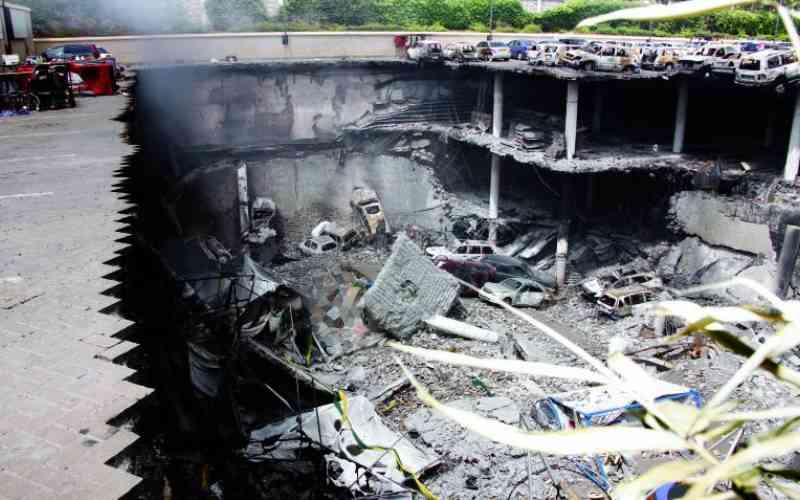×
The Standard e-Paper
Smart Minds Choose Us

Three guards manning the entrance of the Westgate Shopping Mall show no sign of strain as State functionaries and the press swarm their station.
Two of them, a woman and a man, frisk the visitors, by hand and with a metal sensor. They do this as dutifully as they would when the entrance is not as busy.